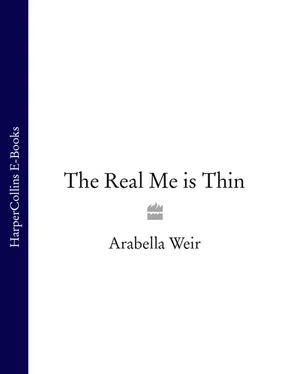Following Dad’s departure, and after a few very unhappy months dominated, as I recall, by awful daily rows with Mum, it was decided that I should join Dad in Bahrain. I don’t know who made the decision. I don’t think Mum and Dad talked it through – how could they have done, with no phone contact possible? The story goes that Mum came up with the idea because I missed Dad so much. On paper this made sense: I was still a year away from secondary school and not very settled or happy at my primary school. However, it remains in my mind as an extraordinary decision for a mother to make. The very vivid picture I still have is that it came about following yet another violent yelling match with Mum, which culminated in her shouting, ‘I can’t bear the sight of you any more – you’ll have to go and live with your father!’
How accurate a report that is of what actually happened, I can’t tell. It is true that we rowed all the time and were both miserable and confused. Me because I didn’t understand why Dad had gone away and we hadn’t gone with him, and Mum, as far as I understand, because separating from Dad had not turned out to be the instant solution to her misery that she’d expected it to be. It is also a matter of fact that I did go and live with Dad in Bahrain while my siblings and mother stayed behind in England. I can remember, despite the rows, being shocked that she was ‘getting rid of me’ so easily. I knew I was a thorn in her side, but I didn’t know what it was I was doing that pricked her. I only knew that she found me unbearable and didn’t want me around.
As it transpired, the few months I spent living with Dad were one of the happiest, if not the happiest, times of my childhood. Bahrain is a small island in the Persian Gulf, on the east coast of Saudi Arabia. At that time Western diplomacy was finding its feet in the Middle East. Presumably, with a mixture of sensitivity to local customs and a wish to maintain independence, foreigners lived in compounds. These were made up of a group of houses, some offices, and a pool built by their own architects. They were, by design, little bits of Britain, UK oases in an entirely foreign land. Our small compound resembled a housing estate in the Home Counties. Dad’s house was a two-storey, archetypal Sixties – lots of glass and wood – functional box. It had three bedrooms and a bathroom upstairs, with a large hall downstairs, a small study, a living room, and a dining room. There were servants’ quarters beyond the dining room, accessed by a swing door like those in restaurant kitchens, which were made up of a kitchen and two tiny bedrooms beyond it. Dad employed two servants: Bundoo and Bourey, Pakistani men he’d inherited from his predecessor. Having servants might sound terribly grand and from another era, and maybe it was, but it didn’t feel like that. With diplomats’ budget for ‘help’, that’s just the way it was, particularly for a man with no wife in tow. Bundoo and Bourey didn’t wear white jackets with polished buttons, or serve gin and tonics clinking with ice on silver salvers. They were part of the household. I’d often sit cross-legged on the kitchen counter watching them making curries or ironing Dad’s shirts or mending or darning – Bourey was a great needleman.
I went to school in Bahrain. The only establishment where the British curriculum was taught was 20 minutes’ drive from home and run by the RAF. Dad had also employed a nanny, Carole, to keep me company during the day. The weather was fiercely hot and there was no air conditioning at school, so lessons started at 7.30 a.m. and ended at 12.30, after which I’d go home, have lunch with Carole, and then spend the rest of the day at the communal pool or the beach or riding in the desert. There were very few other children on the island. All the other British diplomats’ kids were at boarding schools back home. And although there were a few Forces’ kids around – hence the need for the school – they lived miles away in the Forces’ compound. There was a minimal public-transport system for locals, but it would have been out of the question for a ten-year-old foreign girl to travel on it, alone. Consequently, I spent all my free time with either Carole or Dad, but I don’t remember ever being lonely, or, oddly, missing Mum.
During the time I spent with Dad out there he was indulgent, kind, and affectionate. In fact, he was wholly unlike the dad I’d known hitherto, who’d been remote, hardly ever there, and often bad-tempered when he was. I realise now that this softer dad was a result of a unique combination of things that were true for him at the time: he was still hopeful of a reconciliation with Mum, and uncharacteristically grateful both for my company and, I think, for the opportunity to be a full-time parent to me – something which he surely realised was very likely to end shortly. Perhaps the separation, unofficial though it was, made him more acutely aware of the loss of his children, or maybe he felt guilty about my being out there with no contemporaries; I don’t know, but the end result was that I spent more time with Dad than I’d ever done before or ever would again.
And I absolutely adored him. During that time Dad was never critical, never competitive, and always had time to talk to me. Looking back, I think I was Dad’s companion as much as his daughter. I was certainly aware of his dependence on me, and this sometimes made me uncomfortable, because I started to worry about him and if he was lonely. It’s probably not ideal for a ten-year-old to be in a position where she’s looking out for her father’s emotional welfare, and this too shaped a lot of my future relationships – but at the time I was just so pleased to be with my beloved father all the time.
Dad’s job in Bahrain involved having talks, ‘representing Britain’s interest’, with various dignitaries and leaders from Arab states around the Gulf. Sometimes he’d take me with him. On one occasion Dad was due to make an official visit to a very important man in the region: Sheikh Zaid, the ruler of Abu Dhabi and one of the principal architects of the United Arab Emirates. As the visit was scheduled to coincide with my eleventh birthday, Dad took me along. This was the kind of unworried-by-what-others-might-think, relaxed, loving easy-goingness with which I was very unfamiliar, and it was an unexpected joy every time I experienced it. A tiny propeller plane took us from Bahrain south-east to the Buraimi oasis in Oman, where the Sheikh lived in relative modesty.
After Dad and the Sheikh had had their talk (about the Saudi claim to Abu Dhabi’s southern and western territory, I learnt much later in life), our host invited us to join him, his sons, and his entourage for supper. Despite huge wealth gained from the discovery of oil, the Sheikh led a simple, traditional Arab desert-dweller’s life. Supper was served just as it would have been for hundreds of years. Dad and I were shown to a long kilim stretched out on the roof of the Sheikh’s fort, around which blazed flame torches, embedded into sand, providing the only light apart from the hundreds of twinkling stars filling an inky black, cloudless sky. Three huge unidentified limbless torsos stuffed with rice sat on massive plates equally spaced along the carpet. Between each ‘roast’ lay plates piled high with delicious-looking rice made with sultanas and pine nuts (I’ve had that before, I said to myself), plates of okra (I was OK with that, too) and dishes overflowing with what looked like tiny balls of white and black jelly. The Sheikh took his place in the middle and indicated that Dad should sit to his left. Taking my cue from Dad, I settled down cross-legged on the floor next to him, and waited for someone else to start.
Although by now I was familiar with Middle Eastern customs, I had never yet eaten Bedouin-style and didn’t want to make a wrong move. A china plate (surely not traditional) sat in front of each place, but there was no cutlery. I wasn’t quite sure what to eat or, without cutlery, how to go about it. As Dad was deep in conversation with the Sheikh on his right, I decided to watch what others were doing. Casually tossing his headdress behind him, presumably so that it wouldn’t trail in his food, the young man opposite me rolled up his right sleeve and thrust his hand into the hole his side of the beast’s torso. He grabbed a handful of rice and then proceeded to scrap the ribcage of the animal from the inside, eventually emerging with a fistful of meat and rice which he plopped on to his plate before helping himself, with the same hand, to the okra and some of the jellied things.
Читать дальше












